Blog
Top 7 Reasons For Yorkie Growling: Things To Know
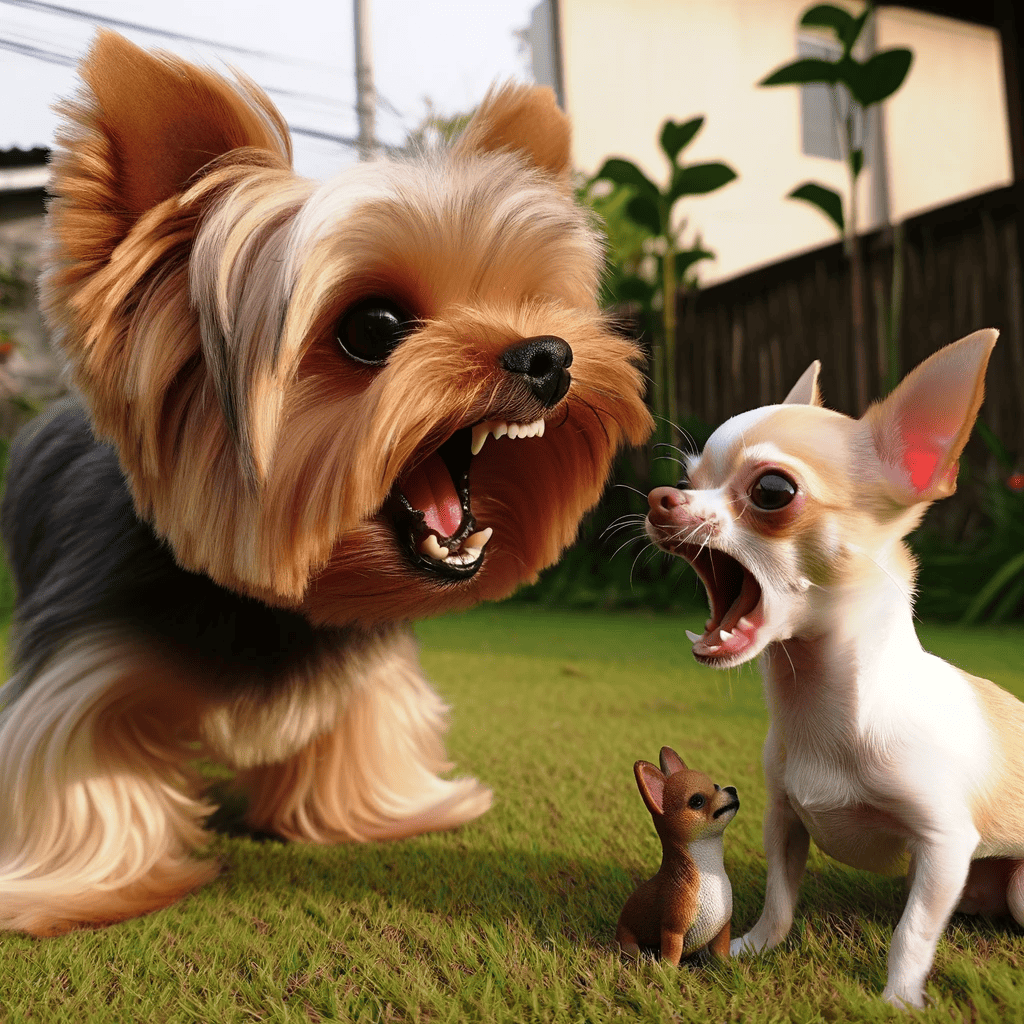
If you’re the owner of a Yorkie, you certainly want to live with an obedient and well-behaved pet. However, what happens when your dog’s behavior doesn’t go in the right direction? Yorkie growling can be one of the problems owners of this dog breed can face.
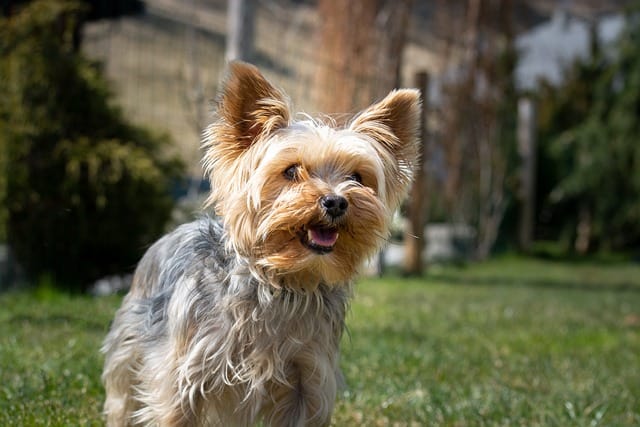
Common Reasons for Growling in Yorkies
Yorkies can growl due many reasons. Just like a kid starts to cry, scream, or yell when goes through a so-called tantrum, that’s how our dogs show us their emotions. It’s a sign of something they’re not comfortable with.
1. Territorial Instincts
Just like larger dog breeds, Yorkies can be quite territorial. They might growl to protect their space, toys, or even their human family from perceived intruders.
2. Fear or Anxiety in Yorkies
Sometimes, a little growl is a big sign of fear. Yorkies might growl when they’re scared or anxious, especially around new people, animals, or in unfamiliar environments.
3. Pain or Discomfort
If a Yorkie is growling more than usual, it could be a signal that they’re in pain or discomfort. This can be due to various reasons, from dental issues to arthritis.
4. Communication and Warning
Growling is a form of communication. It’s their way of saying, “Hey, I’m not comfortable with this,” or “Please back off.”
5. Overexcitement or Playfulness
Not all growls are signs of distress. Sometimes, Yorkies growl during play. Growling is part of their spirited and witty nature.
6. Seeking Attention
Yes, some Yorkies growl to get your attention. It’s their way of saying, “Look at me, I’m here!” It’s the way they tell us: ‘’Hey, I’m angry because you don’t pay attention to me!’’
7. Possessiveness
This stems from their territorial nature. They might growl to guard their beloved items, be it a favorite toy or a tasty treat.
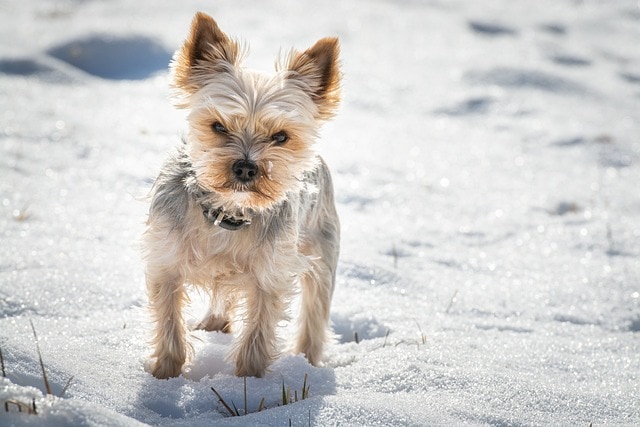
A Yorkie’s Tale: From Growls to Wags
Now, let me share a story about Milo, a Yorkie who belonged to my friend Sarah. Milo was a bundle of energy, but he had one issue: he growled at other dogs, especially during walks. It started as a low rumble but escalated to aggressive growling and lunging.
Sarah was puzzled. Milo was a sweetheart at home, always cuddling and playful. But outside, he was like a different dog. She realized that Milo’s growling was more out of fear and a lack of proper socialization rather than pure aggression.
Determined to help Milo, Sarah started with small steps. She began socializing Milo with friendly, calm dogs in controlled environments. She used positive reinforcement, rewarding Milo whenever he remained calm around other dogs. Gradually, Milo started to associate other dogs with positive experiences rather than threats.
Fast forward a few months, and Milo’s behavior transformed. He went from growling to wagging his tail and sniffing other dogs curiously during walks. Sarah’s patience and understanding played a huge role in helping Milo overcome his fear-induced aggression.
Growling: A Language to Understand, Not Just a Behavior to Correct
Remember, growling in Yorkies, or any dog for that matter, is a form of communication. It’s important to understand the why behind it. Just like in Max’s case, with patience, love, and the right approach, you can help your Yorkie communicate in happier ways.
Identifying the Type of Growl
Playful Yorkie Growling
Not all growls are marked as aggressive behavior in Yorkies. Playful growling during games is normal and not a cause for concern.
Aggressive Yorkie Growling
Aggressive growling is deeper and more intense, often accompanied by body language like baring teeth or a stiff posture.
Fearful Yorkie Growling
A growl can also indicate fear, especially if accompanied by cowering or retreating.
Yorkie Growling And The Role of Socialization and Training
Importance of Early Socialization
Proper socialization from a young age can prevent many behavioral issues, including excessive growling.
Training Techniques to Reduce Growling
Training your Yorkie to respond to commands and manage their environment can greatly reduce instances of growling.
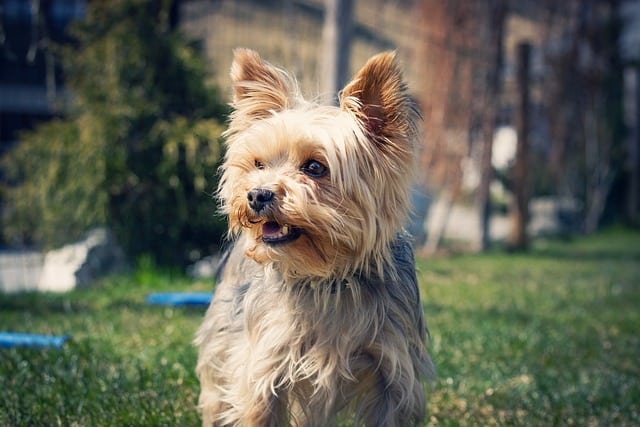
Health-Related Causes of Growling in Yorkies
Medical Issues and Yorkie Growling
Underlying health issues, such as dental pain or digestive problems, can cause a Yorkie to growl.
Diet and Nutrition and Yorkie Growling
A balanced diet is essential for your Yorkie’s overall well-being, and dietary issues can contribute to behavioral changes.
Environmental Factors That Cause Yorkie Growling
Changes in the Environment
Changes in the home environment, like moving to a new house, can trigger growling as a stress response.
Interaction with Other Animals
How your Yorkie interacts with other pets can also influence their tendency to growl.
How to Respond to Your Yorkie’s Growling
Positive Reinforcement
Positive reinforcement techniques can help modify growling behavior.
Seeking Professional Help
If growling becomes a significant issue, consulting a veterinarian or a dog behaviorist is advisable.
How To Prevent My Yorkie From Growling At Strangers and Kids?
1. Start Socialization Early
The earlier you start socializing your Yorkie with different people, including strangers and kids, the better. Expose them to various environments, sounds, and people from a young age so they learn to be comfortable in diverse situations.
2. Positive Reinforcement Works Wonders
Whenever your Yorkie interacts calmly with a stranger or a child, reward them with treats or their favorite toy. This positive reinforcement helps them associate these interactions with good experiences.
3. Teach Basic Commands
Training your Yorkie to respond to basic commands like ‘sit’, ‘stay’, or ‘come’ can be incredibly helpful. It gives you control in situations where they might feel uncomfortable and start to growl.
4. Keep Initial Interactions Short and Sweet
When introducing your Yorkie to new people, especially children, keep the interactions brief at first. This prevents your dog from feeling overwhelmed and gives them time to adjust.
5. Monitor Body Language
Learn to read your Yorkie’s body language. If they seem tense or scared, it’s best to remove them from the situation before they feel the need to growl.
6. Create a Safe Space
Ensure your Yorkie has a safe, comfortable space they can retreat to if they feel stressed or overwhelmed. This can be a crate, a bed in a quiet corner, or a small room.
7. Lead by Example
Dogs often pick up on their owner’s emotions. If you’re calm and relaxed around strangers and kids, your Yorkie is more likely to mirror your behavior.
8. Use a Leash in Public
Keeping your Yorkie on a leash in public places gives you control and can make them feel more secure, reducing the likelihood of growling.
9. Gradual Desensitization and Yorkie Growling
If your Yorkie shows signs of discomfort around strangers or kids, gradually desensitize them. Start with distant exposure and slowly decrease the distance as your Yorkie becomes more comfortable.
10. Seek Professional Help if Needed
If your Yorkie’s growling persists or worsens, consider consulting a professional dog trainer or behaviorist. They can provide tailored advice and training techniques specific to your dog’s needs.
Remember, patience and consistency are key. Every Yorkie has its own personality and comfort level, so it’s important to go at a pace that’s right for your furry friend. With time and the right approach, your Yorkie can learn to be more comfortable and less reactive around strangers and kids.
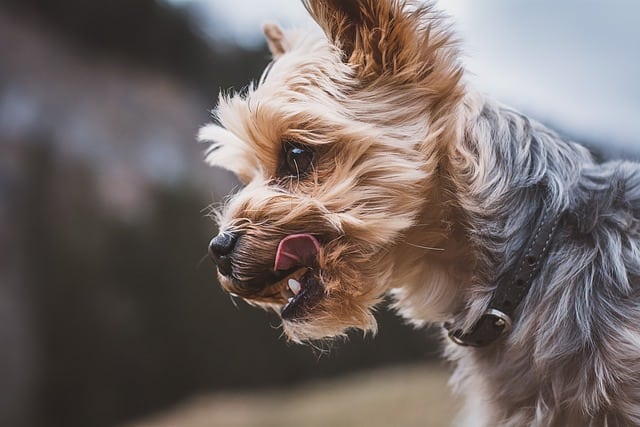
Should I punish my Yorkie for growling?
Punishing a dog for growling can lead to more aggressive behavior in your Yorkie. Instead, try to understand the cause of the growling and address it through training and positive reinforcement.
How can I tell if my Yorkie’s growling is due to pain?
If the growling is accompanied by other signs like limping, loss of appetite, or changes in behavior, it might indicate pain or discomfort. A vet check-up is recommended in such cases.
Yorkie growling: Wrapping Up
Understanding why your Yorkie growls is crucial in addressing the behavior effectively. Whether it’s due to territorial instincts, fear, discomfort, or other reasons, appropriate response and preventive measures can make a significant difference. Remember, growling is a form of communication, and it’s up to us as responsible pet owners to listen and respond accordingly.
